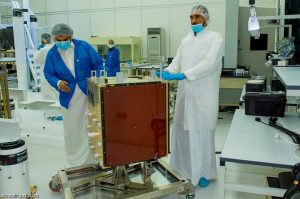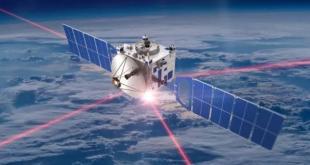
Saudi Arabian officials visited Minsk, the capital city of Belarus, on 16 May 2016 for discussions on various topics of mutual interest with their Belarusian counterparts. The discussions resulted in a number of agreements between the two countries, including one that commits Belarus providing Saudi Arabia with optics technologies for remote-sensing satellites.
The Saudi-Belarusian agreement is part of a wider effort by Riyadh to develop the capabilities and capacity to manufacture its own satellites, primarily at the King Abdulaziz City for Science and Technology (KACST). One of the satellites being is the SaudiSAT-5B, a remote-sensing satellite to be launched by China upon its completion. Saudi Arabia and China agreed to the launch in January 2016 when President Xi Jinping visited Riyadh.
A number of analysts believe that Saudi Arabia is cooperating with another country in Riyadh’s quest to build its own satellites. One Western space industry executive has mentioned the existence of a small satellite under construction in a KACST clean room of unknown provenance. All that the executive knows is that the satellite in question is not being built in cooperation with any known North American, European, or Japanese company or agency. This leaves China, India, Russia, South Korea, or a former Soviet Republic (such as Belarus) – or a combination of these countries – assisting the Saudis in constructing this alleged satellite, and possibly others.
This assumes, of course, that Saudi Arabia is receiving engineering and capacity-building assistance, rather than just technology, from a foreign country.
It is known that over the past several years Saudi Arabia has established space cooperation agreements and commitments with China, India, and Russia, as well as with Western companies such as Lockheed Martin. This wide-ranging international cooperation strategy is in line with wider developments in Saudi Arabian foreign policy that seeks to lessen its strong reliance on the United States for technology and security.
Instead, Saudi Arabia is seeking to establish strong relations with a range of great powers as a reflection of geopolitical shifts across the globe. Space cooperation is a microcosm of these geopolitical changes.
 SpaceWatch.Global An independent perspective on space
SpaceWatch.Global An independent perspective on space

